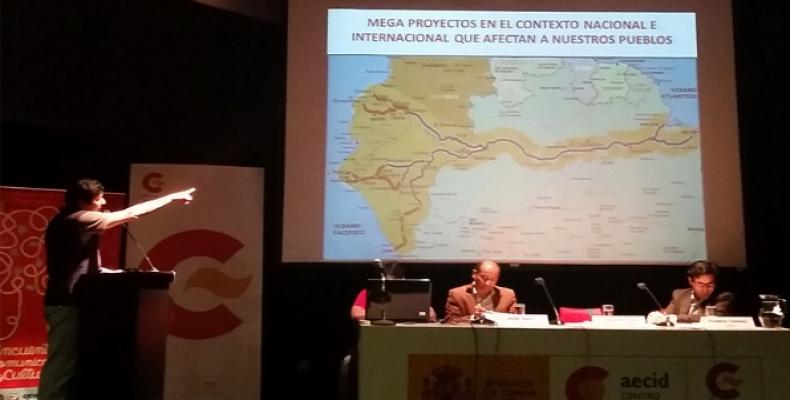Lima, November 12 (teleSUR-RHC), -- Peruvian Indigenous journalists are making their voices heard at the 2014 Communication and Culture Gathering in Lima. On Tuesday, Indigenous journalist Leonardo Tello came to Lima from the Amazon to share his experiences working as Director of Radio Ucamara.
The station is widely considered by experts to be the most important source to revitalize an original culture and language in Peru with the use of communications. The radio station transmits stories in the Kukama language, one of the original languages of the Peruvian Amazon.
Tello explained Radio Ucamara´s strategy, stating that, “We have defined our position in open support of the indigenous issue. In this context, we work with the individual and collective memory of our people and other peoples that are close to the town of Kukama so that, from these contexts, we can make a political, cultural, and communicative proposal to help our peoples.”
All of this occurs “in a reality as complicated as the one we have and which is now declared to be in a state of environmental emergency by the state,” he explains.
At this year’s Communication and Culture Gathering, Radio Ucamara’s undertakings are supported by Jorge Agurto from the Inter-cultural Communications Services (SERVINDI). He argues that “if a people are not informed, they cannot express themselves, they cannot demand their rights like education, defense of their territory, and political participation.” He adds that “communication is being recognized as a basic right, which is not only fundamental for fulfilling other rights but it is also the basis for the protection of cultural diversity.”
To defend their cultural diversity, Radio Ucamara uses traditional indigenous stories to advance political discourses. For example, narratives against the expropriation of their land by oil companies, an important issue for the people of the Amazon. Speaking about this issue, Tello gives the example of the Pelacara Story, which tells of a white man who enters the Amazon and steals the skin and faces of the people. For Tello, this story provides a different way to raise issues of land expropriation from indigenous perspectives.
“What this narration tells us is basically the cultural aggression that our people face, the appropriation of our territories through forest concessions, the oil companies that are buying great extensions of land, and the handover of our ports,” affirms Tello.


